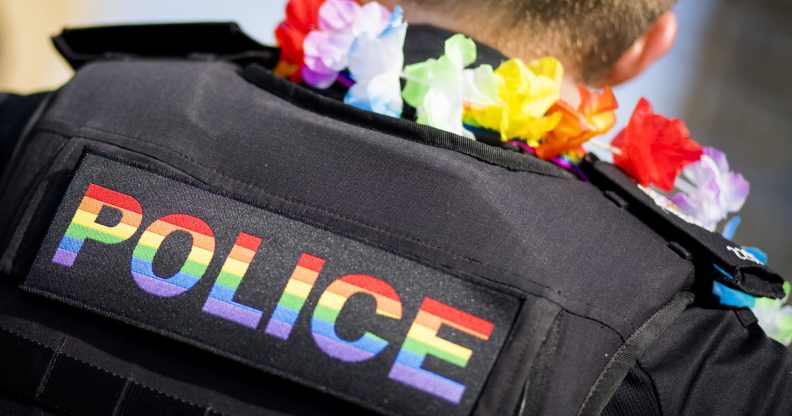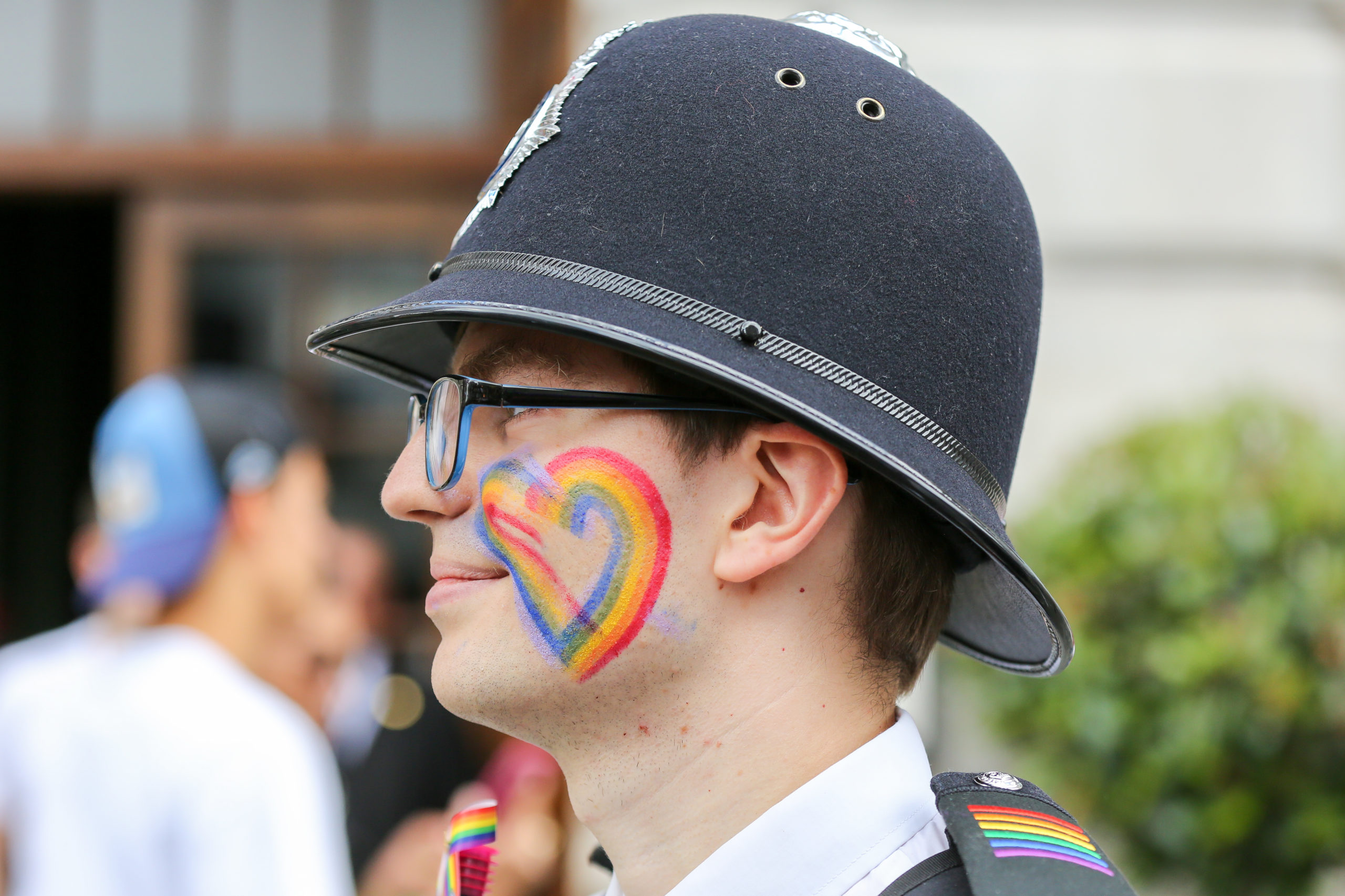Trans police officer insists he’s ‘not a traitor’ as he urges more transgender people to join the force and enact change

A police officer joins Brighton Pride. (Tristan Fewings/Getty Images)
With more queer people attracted to a career in the police, some are having to contend with negative reactions from their friends in the LGBT+ community.
In a bid to shed the police’s “male, pale and stale” reputation and bring more diversity to the force, the UK government has launched an uplift programme to recruit 20,000 new officers in the coming years.
This combined with a more inclusive working culture has made the police a popular prospect for many young LGBT+ people – but outside their ranks old grudges still run strong.
“I do talk about my job with friends and some of them think that you kind of lose a bit of your gayness, your queerness, when you join the police,” 24-year-old trans constable Caspian Clunies-Ross told PinkNews.
“It’s like you’ve chosen a different identity over being gay or being trans.”
Caspian joined the police while he was mid-transition and was supported every step of the way. Like many, he feels the police should represent the community they serve, and that by becoming an officer he’s a part of the solution, not the problem.
“I think a common misconception is that the police are all the same in some way, that it’s quite cult-like in that you go in one end in your rainbow colours and come out the other end wearing black with a taser. And that’s not at all what happened,” he said. “I’m not a traitor, I’m still trans in the police.”
This conflict is all too familiar to sergeant Christian Owens, a veteran of Merseyside Police who came out as trans 18 years ago. “There is mistrust there, and we’ve got to be realistic about that,” he said.
“I often have very honest conversations with some of my trans friends, and with the trans community I serve everyday, who say they’re not fully comfortable – even with me sometimes, because at the end of the day, I wear a uniform. And that uniform can be a barrier.
“But I am one of them, I’m gay, I’m trans. I’ve experienced hate crime myself. I know what their journey is all about, because that’s my journey. I can fully empathise with them. These conversations are difficult at times, and there is still some mistrust that we’ve got to work with.”
For some, like Tara Addison, a bisexual officer on the public protection unit, the divide is less pronounced. She understands the difficult relationship the police has had with the LGBT+ community in the past but takes a more pragmatic view of the future.
“I had quite a few gay and bi friends on the rugby team at uni, and when I told them I was going into the police they were just like, ‘OK, cool.’ There wasn’t any kind of negativity towards it,” she said.
“They look at policing as quite stable, especially in the current climate. It’s a very stable job right now.”
It seems likely that the sense of mistrust is felt more strongly among the trans community, where only one in seven is comfortable reporting hate crimes to the police, according to research by Galop.
While it shouldn’t be beholden on trans people to change the institutions that oppress them, more representation can only be a good thing – and the doors are open.
“The people I work with, the cis men in their late 40s, they’re not out to hate gay people or trans people, even though it certainly can seem like the police don’t understand,” insists Caspian.
“If we join the police, then we’re in the police, and that helps make the police more understanding. And they’re trying. It’s a big learning curve for everyone.”


